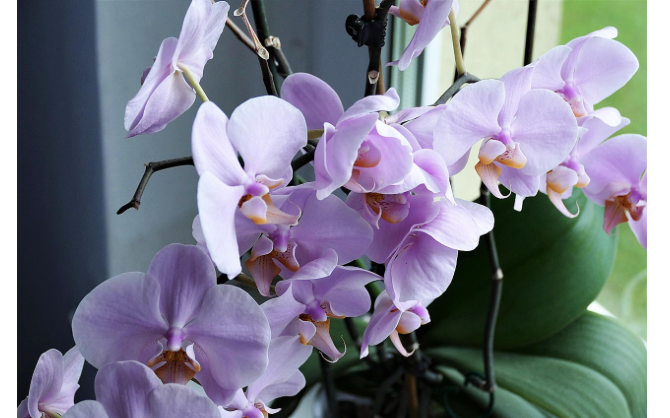Learn about brain health and nootropics to boost brain function
12 Therapeutic Houseplants That Can Boost Your Physical Health, Emotional Well-Being—And Even Your Brain Power


12 Therapeutic Houseplants That Can Boost Your Physical Health, Emotional Well-Being—And Even Your Brain Power
A growing body of research proves that simply being around nature can improve human health and happiness. A month-long 2016 study conducted in the United Kingdom by the University of Derby and the Wildlife Trusts found that connecting to nature resulted in a “scientifically significant increase” in health and happiness, the BBC reports.
“Nature isn’t a miracle cure for diseases,” says Lucy McRobert, Nature Matters campaigns manager for the Wildlife Trusts. “But by interacting with it, spending time in it, experiencing it and appreciating it we can reap the benefits of feeling happier and healthier as a result.”
But you don’t necessarily need to go outdoors to connect with nature: houseplants can help you can bring nature indoors. Keeping plants at home or at work is a simple and effective way to improve your personal environment. Many plants are so easy to maintain that they make great gifts, even for those who don’t have green thumbs.
One area in which we can all probably use a little boost is brain power, and in this regard, plants can be powerful stimulants. “Studies show that tasks performed while under the calming influence of nature are performed better and with greater accuracy, yielding a higher quality result,” writes Charlie Hall, Ellison Chair in International Floriculture at Texas A&M University.
“Keeping ornamental plants in the home and in the workplace increases memory retention and concentration,” he adds. “The calming influence of natural environments is conducive to positive work environments by increasing a person’s ability to concentrate on the task at hand.”
Flowers, in particular, can generate a feeling of happiness, triggering the release of dopamine, serotonin and oxytocin—neurotransmitters that are connected to the brain’s systems related to reward, emotional bonding and mood stabilization.
“Adding flowers to your home or work environment,” Hall says, “reduces your perceived stress levels and makes you feel more relaxed, secure, and happy.”
Being around flora can also help improve our interpersonal relationships. “Research shows that people who spend extended lengths of time around plants tend to have better relationships with others,” Hall points out. “This is due to measurable increases in feelings of compassion; another effect of exposure to ornamental plants.”
Plus, some houseplants aren’t simply ornamental; they can be harvested for medicinal purposes. Keep an aloe vera plant handy and you’ve got a great addition to your juice drinks to help alleviate upset stomachs. Or if you’ve got a small amount of outdoor space, keep a camelliasinensis plant and you can produce your own green tea for a home-grown daily dose of caffeine.
Check out the infographic below to learn more about 12 plants that have the power to heal. Do you have any recommendations for plants that can help improve health and wellbeing? Share them in the comments.

Infographic courtesy Flymo. h/t Sophie Bell-Rhone.
Editor’s note: If you have pets, check before bringing a plant into your home that it’s safe for them first. In particular, be careful not to mix lilies and cats or dogs and aloe vera.
Reynard Loki is a senior writing fellow and the editor and chief correspondent for Earth | Food | Life, a project of the Independent Media Institute. He previously served as the environment, food and animal rights editor at AlterNet and as a reporter for Justmeans/3BL Media covering sustainability and corporate social responsibility. He was named one of FilterBuy’s Top 50 Health & Environmental Journalists to Follow in 2016. His work has been published by Salon, Truthout, BillMoyers.com, EcoWatch, Truthdig, National Memo, Green America, Regeneration International, Revelist, Resilience and BlackBook, among others. Reynard is also the co-founder of MomenTech, an experimental production studio based in New York and Prague that has presented dozens of projects around the world exploring intersections of culture, history, politics, science and sports. Follow him on Twitter: @reynardloki or email him at reynard@ind.media.
This article was originally published on AlterNet.

We do not use bothersome ads to support your readership. Please support us by making a purchase from our shop!
Click here to view full article